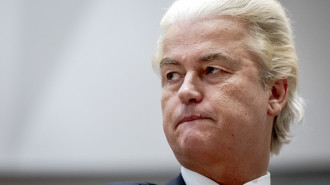Protests have rocked Sudan since December 19, when the government raised the price of bread, and since then have escalated into rallies against President Omar al-Bashir's three-decade rule.
The Sudanese Professionals Association, an umbrella group of trade unions, in a statement called for a march on parliament on Sunday to submit to lawmakers a memorandum calling for Bashir to step aside.
"We are calling for a march to parliament in Omdurman on Sunday," it said referring to Khartoum's twin city where parliament is located.
"The protesters will submit to parliament a memorandum calling on President Bashir to step down," added the association, which represents the unions of doctors, teachers and engineers.
Over the past month, protesters have staged several demonstrations in Omdurman, on the west bank of the Nile.
Officials say at least 26 people, including two security personnel, have died during a month of protests, while rights group Amnesty International last week put the death toll at more than 40.
The group spearheading the protests said there will also be rallies in Khartoum on Sunday, to be followed by night-time demonstrations on Tuesday in the capital and in Omdurman.
"And on Thursday there will be rallies across all towns and cities of Sudan," the statement added.
On Friday, hundreds of mourners leaving the funeral of a protester had staged a spontaneous demonstration in the capital's Burri district, while crowds of Muslim worshippers had launched another rally in a mosque in Omdurman, witnesses said.
Protesters chanting "freedom, peace, justice" have been confronted by riot police with tear gas at several rallies since the first protest erupted in the eastern town of Atbara on December 19 after the rise of bread price.
The government's tough response has sparked international criticism, while Bashir has blamed the violence on unidentified "conspirators".
Analysts say the protests have emerged as the biggest challenge to the veteran leader's rule who swept to power in 1989 in an Islamist-backed coup.
The protests come as Sudan suffers from an economic crisis driven by an acute shortage of foreign currency and soaring inflation that has more than doubled the price of food and medicines.
Agencies contributed to this report.
Follow us on Twitter: @The_NewArab







 Follow the Middle East's top stories in English at The New Arab on Google News
Follow the Middle East's top stories in English at The New Arab on Google News


